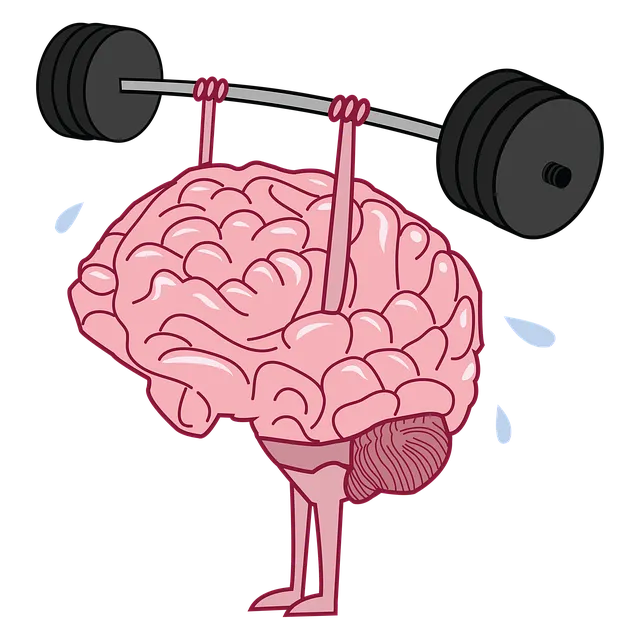Crisis Intervention Teams (CITs) are collaborative efforts by healthcare, social work, and law enforcement professionals to address severe mental health crises immediately in communities like Aurora. The Kaiser Permanente mental health department phone number serves as a key access point for CIT assistance, promoting mental health awareness and reducing reliance on restrictive measures. Effective CIT training programs equip individuals with crucial skills for recognizing, assessing, and de-escalating various types of crises. The Aurora Model, pioneered by Kaiser Permanente, integrates healthcare professionals, first responders, and community members to offer swift and comprehensive crisis support through holistic responses, public awareness campaigns, and mindfulness techniques. The dedicated Kaiser Permanente mental health department phone number in Aurora provides immediate guidance and care during emergencies, promoting mental well-being in the community.
Crisis intervention team (CIT) training programs are vital for communities seeking swift and effective support during mental health crises. This article explores the crucial role of CITs, highlighting the significant impact they have on individuals in distress. We delve into the expertise of the Kaiser Permanente Mental Health Department as a leading force in crisis support, offering valuable insights through their dedicated phone line. Additionally, we present the Aurora Model as a successful case study and guide readers on accessing these critical resources, emphasizing the importance of training programs like those offered by Kaiser Permanente.
- Understanding Crisis Intervention Teams: Their Role and Impact
- Kaiser Permanente Mental Health Department: A Key Player in Crisis Support
- Training Programs: Essential Components for Effective Response
- The Aurora Model: A Case Study in Successful Crisis Team Implementation
- Accessing Resources: Contacting the Kaiser Permanente Line in Times of Need
Understanding Crisis Intervention Teams: Their Role and Impact

Crisis Intervention Teams (CITs) play a pivotal role in responding to and managing severe mental health crises. These specialized teams, often composed of trained professionals from various disciplines, including healthcare, social work, and law enforcement, are designed to provide immediate support to individuals experiencing intense emotional distress or psychotic episodes. In Aurora, the Kaiser Permanente mental health department phone number serves as a critical access point for citizens seeking CIT assistance, highlighting the growing importance of such teams in community wellness.
CITs focus on de-escalating high-risk situations, offering crisis resolution, and connecting individuals with ongoing mental health support. Through evidence-based Self-Awareness Exercises and Mental Health Education Programs Design, these teams foster a collaborative environment that respects individual needs while ensuring safety. The impact of CITs extends beyond immediate interventions, as they contribute to broader Mental Health Awareness, promote understanding among community members, and help reduce the reliance on restrictive measures like involuntary commitments.
Kaiser Permanente Mental Health Department: A Key Player in Crisis Support

The Kaiser Permanente Mental Health Department in Aurora stands as a beacon of hope and support for individuals facing crisis situations. With a team of dedicated professionals, they offer comprehensive services that cater to diverse mental health needs. Their expertise lies in providing swift and effective intervention, ensuring that those in distress receive the critical care they deserve.
Through various programs and initiatives, the department focuses on empowering individuals with self-awareness exercises and emotional healing processes. By teaching effective mood management techniques, they enable clients to navigate challenging circumstances with resilience. With a user-friendly approach, the Kaiser Permanente Mental Health Department phone number in Aurora serves as a vital resource, offering guidance and assistance when it matters most.
Training Programs: Essential Components for Effective Response

Effective crisis intervention team (CIT) training programs are pivotal for communities like Aurora, as evidenced by the demand from organizations such as Kaiser Permanente’s mental health department. These programs equip individuals with crucial skills to respond to crises and support those in distress. The core components of these training programs include education on recognizing and assessing various types of crises, providing immediate and appropriate interventions, and facilitating effective de-escalation techniques.
One critical aspect is the development of social skills training, which enables team members to build rapport with individuals in crisis and communicate effectively. Additionally, mood management strategies are essential, ensuring that CIT members can help stabilize emotions and provide a safe environment for vulnerable individuals. Public awareness campaigns development also plays a role, educating the public on how to recognize signs of distress and respond accordingly.
The Aurora Model: A Case Study in Successful Crisis Team Implementation

The Aurora Model, pioneered by Kaiser Permanente’s mental health department, serves as an exceptional case study in effective crisis intervention team implementation. This innovative approach emphasizes a collaborative and community-focused strategy, ensuring swift and comprehensive support for individuals in distress. By integrating various healthcare professionals, first responders, and community members, the model breaks down traditional barriers, fostering a holistic response to crises.
This unique initiative demonstrates the power of public awareness campaigns and mindfulness meditation techniques in depression prevention. The Aurora team swiftly mobilizes upon receiving a call, offering not just medical assistance but also emotional support and resources tailored to individual needs. Their success lies in recognizing the importance of early intervention and community engagement, making mental health services more accessible and reducing response times, especially for at-risk populations.
Accessing Resources: Contacting the Kaiser Permanente Line in Times of Need

In moments of crisis, accessing immediate support is crucial. One readily available resource for mental health emergencies in the Aurora area is the Kaiser Permanente mental health department phone number. This dedicated line offers a direct connection to professionals who can provide guidance and assistance during stressful situations. By dialing this number, individuals can reach out for help without delay, ensuring they receive the necessary care and support promptly.
The Kaiser Permanente team is equipped with the expertise to handle various crises, offering not just immediate relief but also long-term solutions. Their services cater to a wide range of needs, from stress management guidance to more intensive mental wellness journaling exercises, all tailored to the individual’s specific circumstances. Public awareness campaigns development and initiatives aimed at promoting mental health are also part of their comprehensive approach, fostering a culture of support and understanding in Aurora and beyond.
Crisis intervention team training is a vital resource for organizations like Kaiser Permanente, demonstrating the significant impact of programs like the Aurora Model. By equipping teams with effective skills and knowledge, these initiatives ensure swift and compassionate responses during crises. The Kaiser Permanente Mental Health Department’s dedication to support and their readily accessible phone number further emphasize the importance of crisis intervention. Through comprehensive training and resources, organizations can foster a culture of resilience and effectively navigate challenging situations, ultimately enhancing community well-being.






